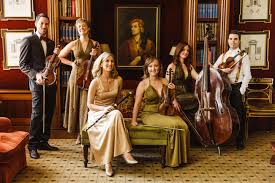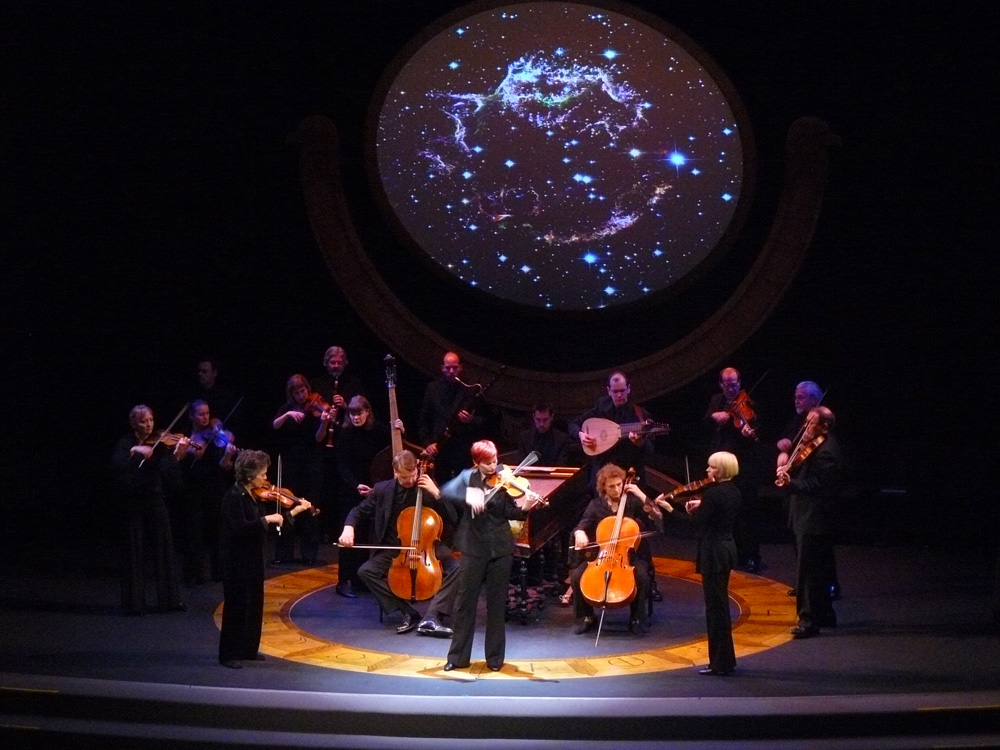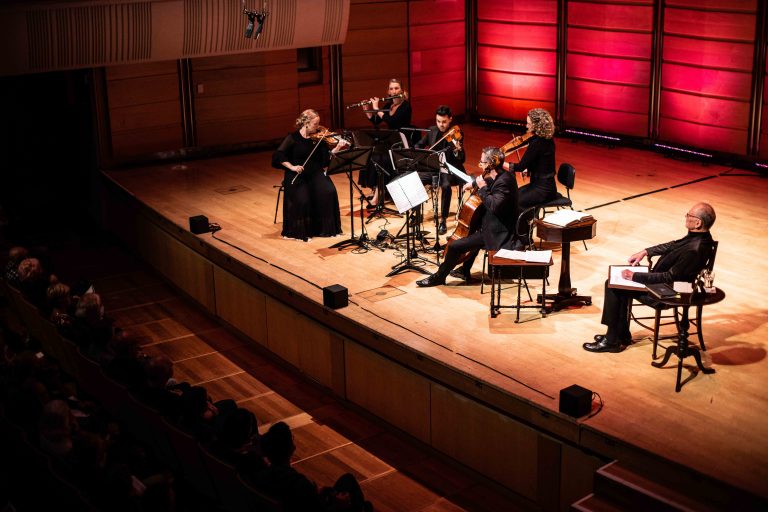Concert Review: Musical Luminati ‘Bach in the Dark’/ Twilight Musical Dialogues

Twilight Musical Dialogues
Musical Luminati ‘Bach in the Dark’
Adamstown Uniting Church
Friday June 15th, 2018
Twilight Musical Dialogues hosted the second instalment of its 2018 ‘Musical Luminati’ series entitled ‘Bach in the Dark’. For this concert, flautist Sally Walker was joined by cellist Rachel Scott and featured young artist, oboist Christopher Pantelidis. They presented a program comprising works by Carl Philipp Emanuel Bach, Johann Sebastian Bach, Henning Kraggerud, MB Sibson, Martin Wesley Smith, George Phillip Telemann and Elena Kats-Chernin.
The idea of ‘Bach in the Dark’ was conceived by Scott. Her aim is to give the audience a chance to shut out distraction, allowing single-minded focus on listening to the performance. The concert commenced in near-darkness, with the candle-like glow of the music stand lights on stage as the only source of illumination. Walker and Scott entered the stage to perform the elegantly virtuosic Hamburger Sonata H500 by C.P.E Bach. The rich velvety tone and brightness of the flute, through the lyrical cantabile sections and rapid semiquaver passages, accompanied by the sturdy and resonant basso-continuo of the cello, was the perfect means of commencing this program.
The concert was followed by an introduction to Rachel Scott and her expertise as a music educator, speaking specifically about her work with the Australian Childrens’ Music Foundation. She told of her expeditions to rural parts of Australia where she introduced primary school-aged children to the music of Bach and inspired them to love music. Scott said that “all children should have access to musical education, not just those in privileged schools. The benefits of music are enormous – I teach the kids I see, who are mostly unloved and forgotten, to walk taller and believe in themselves.”
Not only is Scott an inspirational orator, but also a comedic one, offering ample wit when introducing the performance repertoire. The next two pieces on the program were J.S. Bach’s Inventions in C major BWV 772 and C minor BWV 773. These Inventions, and the conversational style for which this counterpoint idiom is renowned, were delivered by Walker and Scott with sophistication, flair and polish.
Following Bach’s inventions was Kraggerud’s Musical Calendar. Henning Kraggerud is a Norwegian composer who wrote Musical Calendar in 1991. The composition is improvisatory and conversational, with decorative ornamentation, lyricism and counterpoint melodies. Originally composed for two violins, Twilight Musical Dialogues obtained the composer’s permission to perform it on flute and cello. Musical Calendar was performed by Walker and Scott with grace, refinement and a strong sense of dialogue within the two instrumentalists.
J.S Bach was featured again with his Sonata in C major, BWV1033. This work was particularly exciting to witness, given the mystery surrounding its authorship (there is debate among musicologists and historians as to whether the composition of this work is attributed entirely to J.S Bach himself). This ambiguity aside, the work was compelling in its charm, contemplation and elegant athleticism.
Following this, Scott premiered a work by MB Sibson called Ouroboros No 1. Based on an inverted subject of J.S Bach’s The Art of Fugue, this piece for solo cello necessitates a looping pedal, creating multiple layers of melody. This modern interpretation of the fugue idiom was tastefully catchy, proving Scott to be an engaging performer.
Christopher Pantelidis performed with Scott in the subsequent item on the program which was Intervention by Wesley-Smith. Pantelidis is to be praised for the warm sense of melodic phrase he achieved in his performance, as is the sense of ensemble achieved between both himself and Scott as she accompanied him on cello.
The program concluded with the spirited Methodical Sonata in G TWV 41:G4 by Telemann. With meditative passages of reflective melodies, lively sections on flute and the reverberation of cello, this was a strong finish to this fine concert program.
As an added treat for the audience, both Walker and Scott performed ReInvention by Kats-Chernin. With the Russian, folk-inspired quirk and enchantment for which Kats-Chernin is celebrated, the concert finished with a highly satisfied audience indeed.
In the darkness of the church, Scott achieved what she set out to do – inviting an audience to immerse themselves into the healing music of Baroque and Baroque-inspired repertoire. As Scott said, she regularly witnesses the positive impact that this style of unperturbed concentration has on students and it most certainly had this same effect on the audience of this concert.
Joseph Asquith for SoundsLikeSydney©







